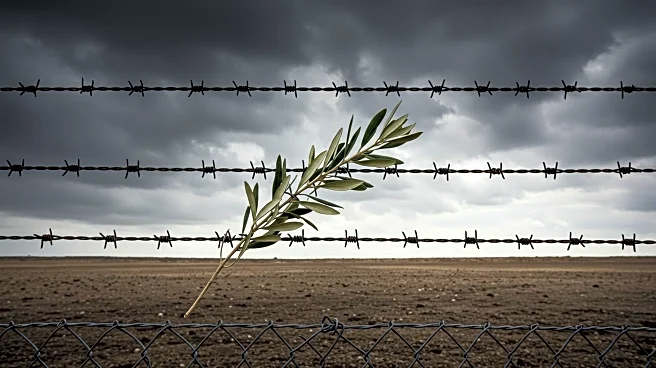What's Happening?
Hamas has rejected Israel's plan to relocate residents from Gaza City to southern Gaza, labeling it as 'blatant deception.' The Israeli military announced it would begin distributing tents and other housing equipment to facilitate the relocation. This move comes as Palestinians, displaced by ongoing Israeli military operations, seek shelter in tent camps. The relocation plan has sparked accusations from Hamas and raised concerns internationally about the humanitarian implications of such actions.
Why It's Important?
The rejection of the relocation plan by Hamas highlights the ongoing tensions and humanitarian challenges in the region. The situation in Gaza is a focal point of international concern, with implications for regional stability and human rights. The relocation plan, seen by some as a forced displacement, could exacerbate the humanitarian crisis in Gaza, affecting thousands of civilians. The international community, including human rights organizations, may increase pressure on Israel to address these concerns and seek alternative solutions.
What's Next?
The international response to Israel's relocation plan could lead to increased diplomatic efforts to address the humanitarian situation in Gaza. Stakeholders, including the United Nations and other international bodies, may call for investigations into the impact of the relocation and seek to mediate between Israel and Hamas. The situation may also influence future peace negotiations and impact U.S. foreign policy in the region, especially regarding its stance on Israel and Palestine.
Beyond the Headlines
The relocation plan raises ethical questions about the treatment of displaced populations and the responsibilities of occupying forces. It also underscores the complex geopolitical dynamics in the Middle East, where actions by one party can have far-reaching consequences. The humanitarian aspect of the relocation plan may lead to increased scrutiny of Israel's military strategies and their compliance with international law.










